Haitian Migrants Caught Between Rock And Hard Place
Lying on cardboard in a park, Haitian mother Marie Chickel spent a sleepless night fearful of being detained by Mexican authorities and separated from her children before reaching the United States.
"I heard that the immigration authorities were going to come -- that's why I couldn't sleep. If they find me here I don't know where I'll go," the 45-year-old said.
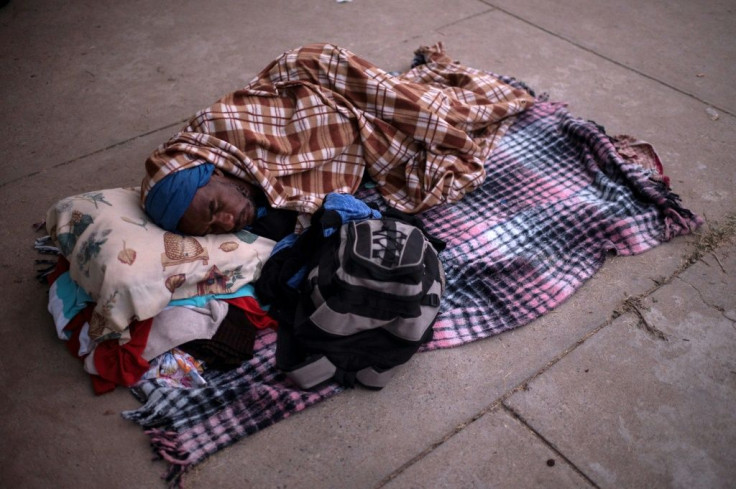
The rumor spread during the night inside the park in the Mexican city of Ciudad Acuna, which Haitian migrants have turned into a makeshift camp near the border with the United States.
Most of the refugees gave up on the idea of staying under the bridge linking Ciudad Acuna with Del Rio in Texas, fearful that US patrols would arrest them and deport them to Haiti.
But on the Mexican side of the Rio Grande river, police and immigration agents also patrol and sometimes arrest migrants in the street or in hotel raids.
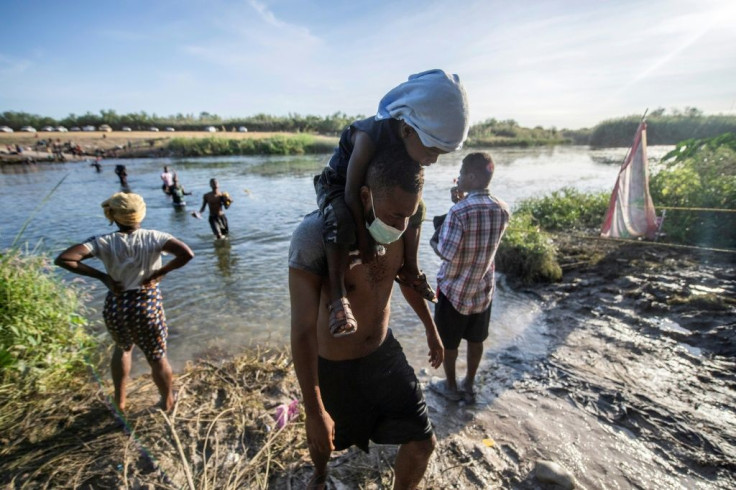
So Chickel and hundreds of refugees like her avoid leaving the park as much as possible.
In one raid witnessed by AFP, members of what appeared to be a family, including two young children, were detained at a hotel in downtown Ciudad Acuna.
They were escorted by members of Mexico's National Guard and put into vans from the National Migration Institute.
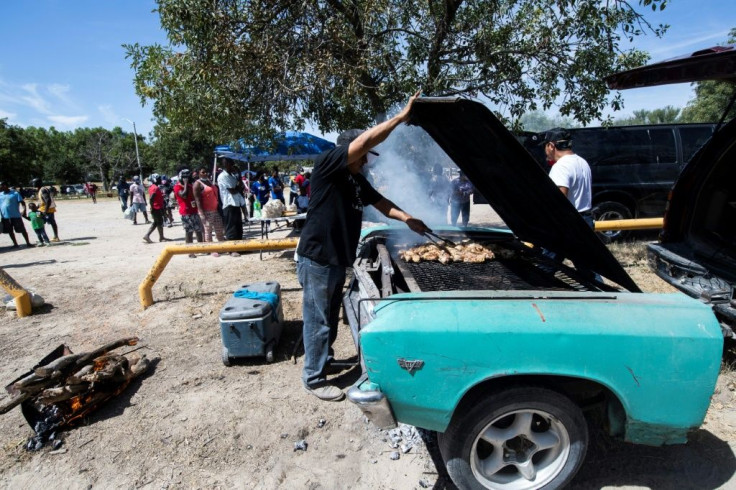
Chickel and her 10-year-old twins left Chile and crossed almost all of South and Central America before arriving in July in the Mexican city of Tapachula near the border with Guatemala.
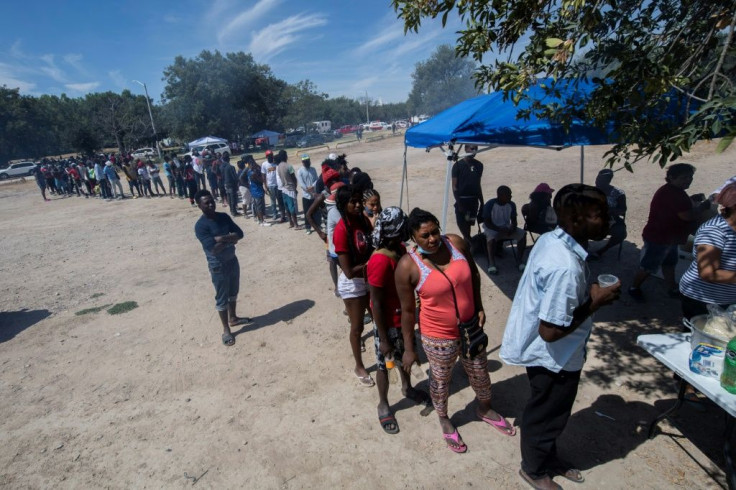
"My heart aches," she said, adding that her children could not sleep or eat well or go to school.
"It's very difficult," Chickel said.
Her greatest fear is having her children taken from her and not being able to see her sister who lives in Boston, she said.
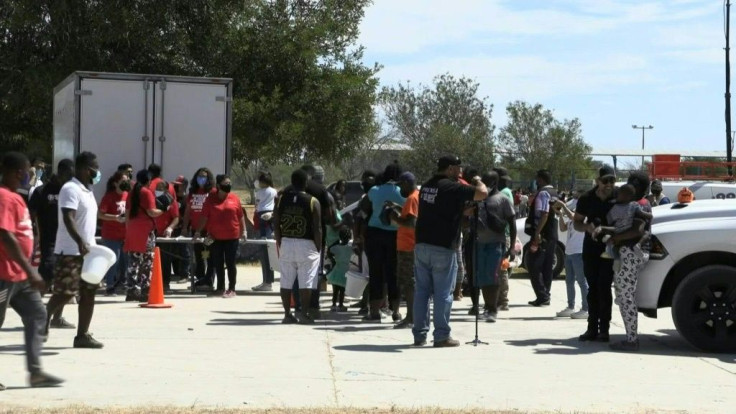
But Chickel, who has qualifications as a lab technician, an electrician and a nurse, is willing to take whatever opportunities she finds.
"If I can't cross and if I can find papers here to work, to send my children to school, I can say thank you to the Lord," she said, stifling a sob.
Amid the despair and uncertainty, the Haitians have found some respite thanks to the generosity of Ciudad Acuna residents who have brought them something to eat, drink or wear.
"The Mexicans are giving us food, clothes and now we have a place to sleep," said Kabelo Joseph, who came from Chile with his two sons and pregnant wife.
But "we're afraid of the migration authorities because we're here without documentation," the 29-year-old said.
He said he planned to stay in Ciudad Acuna "for two or three months if migration doesn't bother us."
Street vendor Haydee Briceno usually sells the used clothes she brings from the United States, but after seeing the migrants' plight she decided to give some of them away instead.
"We're going to give a little bit of what we have to our Haitian brothers," she said.
"I've been in places where I didn't know anyone and believe me it's something very, very difficult," said Pastor Roberto Montano, who lived as an undocumented migrant in the United States years ago.
"We've had the same feeling that they have now of being in need," he said.
The help is a lifeline for people like Chickel, who is exhausted.
"I feel very happy. I say thank you to the Lord because they have hearts. They don't let us die here without food," she said.
© Copyright AFP {{Year}}. All rights reserved.




















